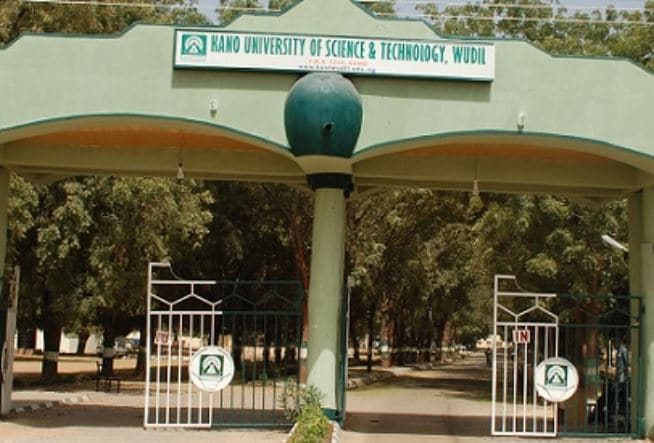 The presidency has mapped out strategies aimed at ensuring the empowerment of no fewer than five million Nigerians with various artisanal skills annually.
The presidency has mapped out strategies aimed at ensuring the empowerment of no fewer than five million Nigerians with various artisanal skills annually.
The Senior Special Assistant to the President on Technical, Vocational and Entrepreneurial Education, Abiola Arogundade in an interactive session with reporters in Abuja explained that the initiative was aimed at cutting down the 133 million Nigerians living below the poverty line.
She explained that the initiative which entails collaboration with various countries, educational and financial institutions in the country would expose beneficiaries to the acquisition of artisanal skills that would not make them Self reliant but would be a source of earning the country the much sought after foreign exchange.
Arogundade explained that already her outfit have embarked on train no fewer than 500 inmates in each of the correctional centres spread across the country was in line with the objective.
according to her: “We’ve also started training in the correctional centres. We launched the scheme in Kuje. We took a few members from my office to the correctional centre to do an audit of the needs of the inmates. I’m happy to announce that we started conducting the assessment and auditing of the trainees. And I am happy to announce that every single person that we train there is also going to be certified.
” They will not be left behind. It’s the same curriculum that we have and we are partnering with global bodies to make sure that any skill you acquire in Nigeria is going to be recognised worldwide and we are happy to also announce that we have secured it for every single person in training.
“At the end of their prison term and our training, we give each of the beneficiaries N500,000 to set up their businesses so they don’t become a second-time offender at a correctional centre. This scheme is ongoing.
“So after Kuje Correctional Centre, we are moving to Suleja. We are going to try and duplicate this intervention in all our correctional centres across the country.
“There are two dimensions to the training, we will be training artisans to build and we are going to employ them. We are also training the beneficiaries. For example, if you are going to be a hairdresser, we train you on how to have the best skills in hairdressing. We empower you with the kiosk. Not only that, the kiosk will have three streams of income. You can use the kiosk for your main skill which in this case as I mentioned, will be hairdressing, you can use it for POS business and other ventures.
“So we are partnering with the bank. They will supply the POS and also you can use it to charge phones. We are using that as a multi-purpose intervention for three streams of income which we are launching today and we will be giving it out to the beneficiaries after we train and certify them.
“We also want to announce that we will be starting the programme which we call MYTV videos. Online we told people to send a one-minute video on what their skills are. Once you upload your video, we train you, we are happy to announce that we got over 10,000 entries and we are at the stage where we are picking 2000 people to go through the free training. Part of the curriculum of the free training for your assessment is to write a business plan. Those who write a good business plan will be granted N500,000 to continue and upscale their business.
“We are also working with the Bank for Industry. We are working on something called training for Industries. Like I said before, our methodology is backward integration, so we are working with the Bank of Industry, to work with the private sector and we are training people to make sure they have the right skills that the industries are looking for. So we have started that assessment as well.
“We have had meetings with different ambassadors. So what we are trying to do is to work with multinationals. Sometimes they complain about our citizens not having the skills, so we are working with them to make sure that they give us the skills, tell us the skill set and train people on that skill set. So our return on investment will be like when we invest in the training, they will be employed by the multinationals.
“We are also looking at a big component with Foreign Affairs to look at human capital development with a big component of what we negotiate when we are negotiating countries-to-countries agreements.
“Everybody who is trained in any of our schemes is certified, you get your certificate and after your certificate, we make sure that we have a solution for you. So we either put you on employment or we match you with a bank for them to give you a non-collateral loan or you get a grant. So our partnership that starts with the bank starts as a guarantor so that anybody that is trained is not just sitting idle but they use their skills.
“We are also in collaboration and talks with the French Development Bank for construction training programmes. So we have been working very assiduously with them and we have agreed that we are going to start a construction training programme. The French Development Bank will also be sponsoring the acquisition of training centres and the initiation of student batches.
“So what they are going to do is that they want to partner with us, for us to develop training centres, especially in construction because they are very big in that. In this case, the curriculum will match the curriculum of the French. So that even when they have French companies that come into the country, those are the first point of call and then the certificate will be in partnership with the French Development Bank
“We are also working with the Office of the NSA, what they are trying to do is counter-terrorism and the way they want to do that is through skill. So we are working with them on skills and. To train people to make sure that they don’t become terrorists. If they already are, bring them out as a sort of income.
“We are working with different embassies. Of course, we met with the Mexican embassy, and Morocco embassy and what we trying to do is to make sure that the multinationals that are coming into the country, their first point of call will be our office, so the people that we’ve trained as artisans or those with vocational skills that they are going to employ into the multinationals.
“In the country, the highly skilled is at 15% and we are trying to move that to 50%. So we have different interventions where we want to bring vocational, technical and entrepreneurial skills. We are already working and talking to NYSC. They have registered for a programme like that but we are trying to enhance that programme to give corps members the option of instead of having to have a blue-collar job, you can also choose a vocational or entrepreneurial skill which will be recognised with the NYSC certificate.
“Like in the correctional centre in Kuje, they have already started things like fashion designing but they are using very updated equipment like sewing machines. So what we are going to be doing is also donating more state-of-the-art sewing machines. They complained a lot about computers, so we are also donating laptops. Not only are we going to be training, but we are also going to be leaving behind some equipment they can use to develop their skills.
“We have six months of training, we have nine months of training. So it depends on what you want to do. But our target is to start with people who are closer to the end of their sentence, so that as you are going out, you are going out with the skills and the day that you are in the day we will release the 500, 000 to you. We will also mentor you and teach you how to start up a business just to make sure you don’t become second-time offenders. We rehabilitate you into the community.
“So we have a Curriculum that we have put together which we detailed. You see all here how we are training them. How we are going to make sure that the majority of them don’t become second-time offenders?
“We have looked at some case studies in other countries, like the Norwegian prisons to see what they did because they have a very low second time offenders rate. So we have been working with that very closely. It’s one of our key projects.
“As I said, as we started with the Kuje correctional centre, we are moving to Suleja and we are going to duplicate that all across Nigeria because Abuja is our pilot. The same with our solar kiosk as well, the pilot is starting in Abuja which will be out today. We have videos and everything to make sure that we can cater to different people across all walks of life, from single mothers, widows and men to barbers and food kiosks.
“We have quite a few that we want to give out to the population to make sure that we increase economic productivity and reduce the unemployment rate because we also teach them entrepreneurship skills and how to manage their business.”













